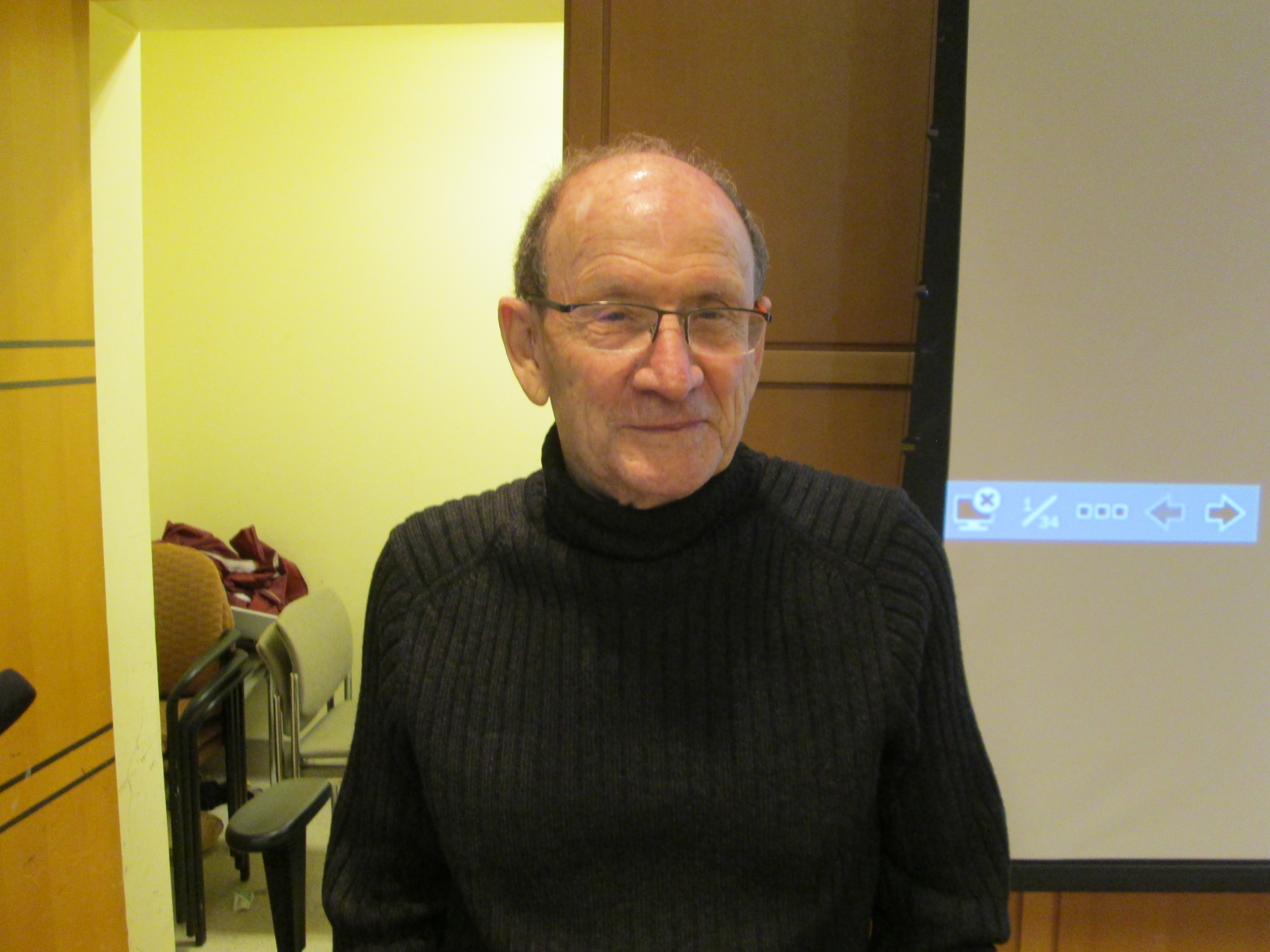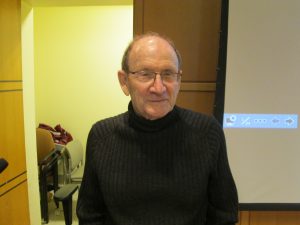

To commemorate the annual International Holocaust Remembrance Day, Brooklyn College physics professor Micha Tomkiewicz shared his own experience as a Holocaust survivor during his lecture, “When the Past Writes the Present: From Holocaust to Climate Change.”
Born three months before Germany’s invasion of Poland in 1939, Tomkiewicz has little recollection of his early childhood within the genocide. After living as a “hidden child” with a Christian family for four years, Tomkiewicz and his family were lured out of hiding into a hotel where they were told they could buy foreign papers and flee to the Americas. This turned out to be a trap, and the Tomkiewiczes were instead sent to the Bergen-Belsen concentration camp.
Tomkiewicz admits he doesn’t know how he survived the Holocaust.
“I have no real answer to this query except that I was one of the lucky ones,” he said during his presentation.
Two years and one near-fatal case of typhus later, Tomkiewicz’s liberation came unexpectedly on a train ride wandering west of Bergen-Belsen camp, when he was freed by the US Army’s 743rd Tank Battalion.
According to the US Holocaust Memorial Museum, 1.5 million Jewish children died under the Nazi regime. Approximately 6 million Jews and 11 million others were killed. To ensure these mass killings of the Holocaust becomes a history that “prevents future genocides,” the United Nations adopted a remembrance day in 2005.
“The Holocaust history is clean and clear: you know who to hate, you know who to love, you know who to feel sorry about,” stated Tomkiewicz.
Nonetheless, personal accounts of survivors and documentation provided by credible sources like the UN are not enough for anti-Semitic and Holocaust denialists. Some continue to believe World War II is a hoax. Tomkiewicz is very aware of these conspiracy theorists.
“For guys like that, I am a target,” said Tomkiewicz.
To Tomkiewicz, the Nazi-led genocide of his childhood and present climate change crisis have one significant similarity: deniers. On his blog Climate Change Fork, Tomkiewicz argues the Holocaust continued as a consequence of inaction against the Nazi regime and Hitler’s agenda shared in Mein Kampf. The autobiographical manifesto demonstrated Hitler’s anti-Semitic views and intent in mobilizing against “all who are not of a good race,” but many ignored the evidence, which allowed his “final solution” to come to fruition. Similarly, Tomkiewicz believes that denial of environmental destructions, such as loss of biodiversity and high CO₂ emissions, could lead us humans to our ‘global suicide.’
“I am not suggesting that the Holocaust is just like climate change,” Tomkiewicz wrote in a blog post. “My use of the term self-inflicted genocide refers to the relatively distant future, while the Holocaust refers to a confirmed past event.” The critical difference between these events, he says, is that the Holocaust was a “man-on-man genocide,” whereas today’s climate change crisis can become a “self-inflicted genocide.”
Tomkiewicz has dealt with a range of responses to his comparison. For Mark Hoofnagle, blog writer of “Is the holocaust denial/climate change denial comparison apt?,” the observed similarity between the two events is unnecessary in the discussion of denialism.
“I do not think that a moral comparison need be made between Holocaust deniers and climate change denialists,” stated Hoofnagle. “The only comparison needed is between their tactics, which are dishonest and intellectually bankrupt.”
On the other hand, others share similar thoughts with Tomkiewicz. In 2019, novelist and NYU creative writing professor Jonathan Safron Foer wrote We Are the Weather: Saving the Planet Begins at Breakfast. According to The Guardian, the author encourages the reader to demonstrate a “different kind of heroism” to combat climate change. Foer concludes by referencing the “unobvious need for sacrifice” his grandmother had when fleeing Poland before the Holocaust annihilation began.
“Climate catastrophe is ungraspable, just like the Holocaust,” wrote Foer.
Since visiting the Bergen-Belsen camp in 2002, and reconnecting with his buried past as a Holocaust survivor, Professor Tomkiewicz engages in remembrance reunions alongside the genocide’s “last living generation.” In a time where opinions on climate change are polarizing, Tomkiewicz has intertwined his background in the Holocaust with physical chemistry to educate students on the severity of our current environmental conditions. Nevertheless, his warning of the ‘self-inflicted genocide’ is one perspective that may differ from another educator’s beliefs.
“This is why we keep you guys [students] skeptical when it comes to class. Bottom line is that you have to do your own research. Your own research will determine who you believe or don’t believe,” advised Tomkiewicz. “It’s all in your hands. You cannot let a professor or anyone dictate your outlook for life.”
